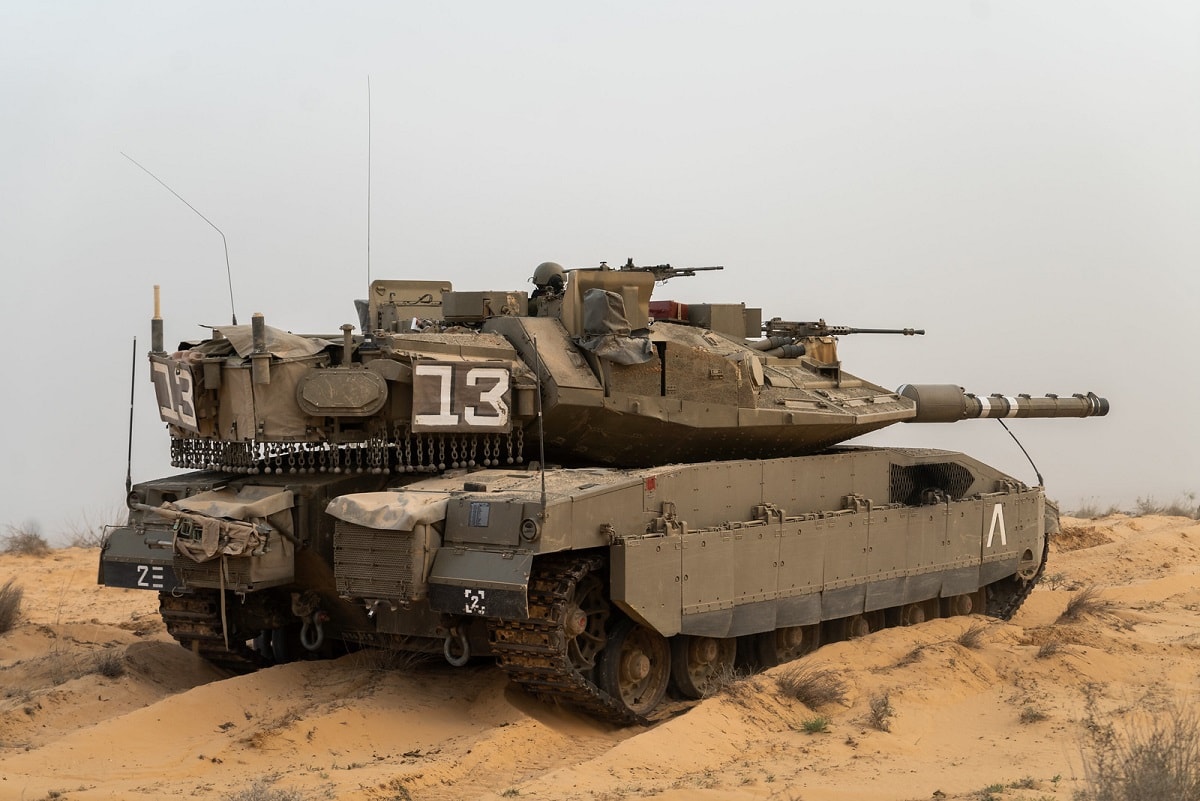Robert Wilkie and Jacob Olidort

In 2023, the United States approaches transition points in its relationships with three nations that share the following qualities: Each is in a theater with a major U.S. adversary (a “Goliath”). Each is not part of any formal alliance structure. And each is a small nation (a “David”) to which the United States makes consistent annual defense contributions.
The similarities among Israel, Taiwan, and Ukraine end there. It is their differences that might illuminate how the United States can optimize its defense assistance in an increasingly interconnected world—where events in one theater can make a difference in another.
Israel is perhaps a “model” David. Before becoming a recipient of consistent U.S. assistance, it miraculously succeeded in fighting for its survival against all neighboring states since its founding in 1948. The turning point was 1967, when over the course of six days Israel defeated the militaries of Syria, Jordan, and Egypt.
While U.S. support for Israel has been unambiguous from its founding—the United States was the first nation to recognize Israel 11 minutes after it declared independence—the nature of U.S. military support became more deliberate and robust several years later. When the same constellation of states launched a surprise attack against Israel in October of 1973, Richard Nixon shuttled key military equipment to Israel. “Send them everything that can fly” were Nixon’s words as he launched Operation Nickel Grass—an airlift over the course of one month that included more than 22,000 tons of armaments that effectively ensured Israel survived the Yom Kippur War. Nixon’s support of Israel—which Golda Meir noted made him the greatest friend the Jewish state ever had—tilted U.S. foreign policy from the indifference of the Johnson Administration to decades of steadfast support that has only been threatened by the Obama and Biden administrations.
In the decades since 1973, not only has the Middle East changed but so has Israel’s role as both a defense consumer and a defense contributor. The $3 billion annual U.S. assistance to Israel helps in the development of innovative military technology that includes capabilities that the United States and its allies have acquired – for example, the U.S. purchase of the Iron Dome and Germany’s planned acquisition of the Arrow-3 missile defense system. Israel faces a multi-front threat environment from the Iranian regime—whose ideology calls for the destruction of both Israel and the United States—which ranges from its nuclear and missile programs to terrorist attacks from Iran’s proxies in Gaza, the West Bank, and Lebanon. As the threats to Israel have evolved, its military and intelligence have grown to be without equal in the region and on par with some of Europe’s most effective militaries.
Israel’s importance is indispensable not only for deterring our adversaries in the Middle East but for providing stability and peace in Europe and for America’s own combat needs. To say that Israel is a model defense contributor is an understatement. It is a defense consumer that also contributes to U.S. and European deterrence efforts.
Taiwan is in a different position as a defense consumer. Unlike Israel, it faces an adversary in China that is an economic powerhouse—that is aggressive in different ways from Iran and is building up its military (including through theft of American intellectual property (IP)). However, unlike Iran, China has a military that has not fought a major land war in recent memory. As far as its threats to the United States, the main ones, in addition to IP theft, relate to economic coercion—trade imbalances, its Belt and Road Initiative—and to exploitation of its economic advances (e.g., commercial port projects abroad) to further its military aims. It is a different type of adversary, a much more whole-of-nation type, to be sure.
U.S. defense support for Taiwan is crucial and has been called the “porcupine strategy”—arming it with capabilities that can sufficiently deter an invasion by Communist China. U.S. diplomatic overtures to Taiwan have long been needed. The Taiwanese are untested in fighting, so joint exercises and military exchanges are important to ensure they are in a position to defend their sovereignty. Taiwan is the norm for what the United States can expect of the Davids among smaller allies—receiving military assistance and training so that, should the day come, they are in a place to respond effectively.
Ukraine is different from Israel and Taiwan. It has demonstrated an ability to fight and defend its sovereignty against a Goliath, Russia. That’s about it. Importantly, unlike Israel and Taiwan, Ukraine is not even an ally. Russia, unlike Iran and China, is militarily effective (to a point) but is far from a serious economic player. It is an adversary that needs to be deterred, and it threatens the United States and its allies in a range of ways—from cyber and information attacks to nuclear weapons, of which it has the world’s largest arsenal.
Where Russia and Ukraine will be after the invasion is still far from known. What is known is that the United States will need a way to frame its support to Ukraine following the invasion. That support should begin by recognizing that it has shown itself to be a David, but just what kind of David it plans to be will depend on how effectively it can help the United States advance its national security interests in the region and beyond.
No comments:
Post a Comment